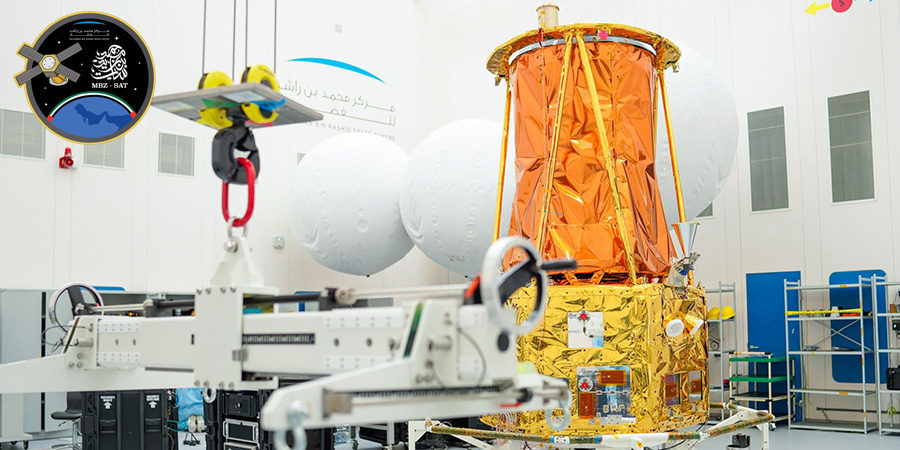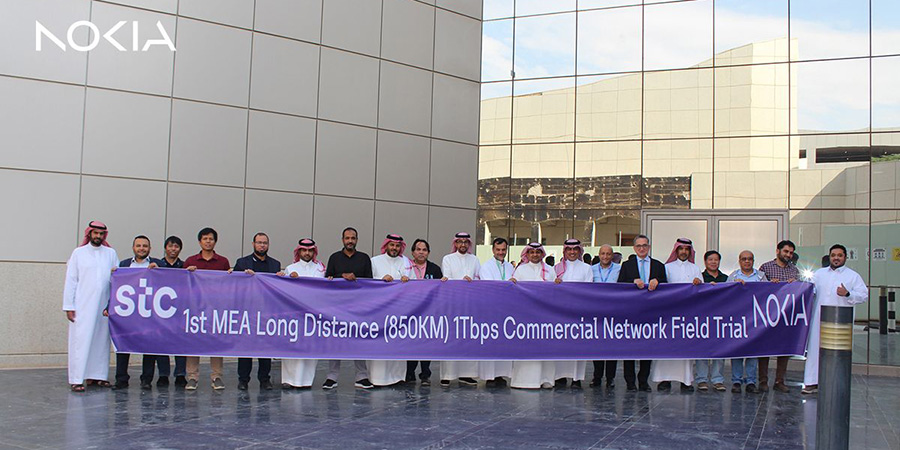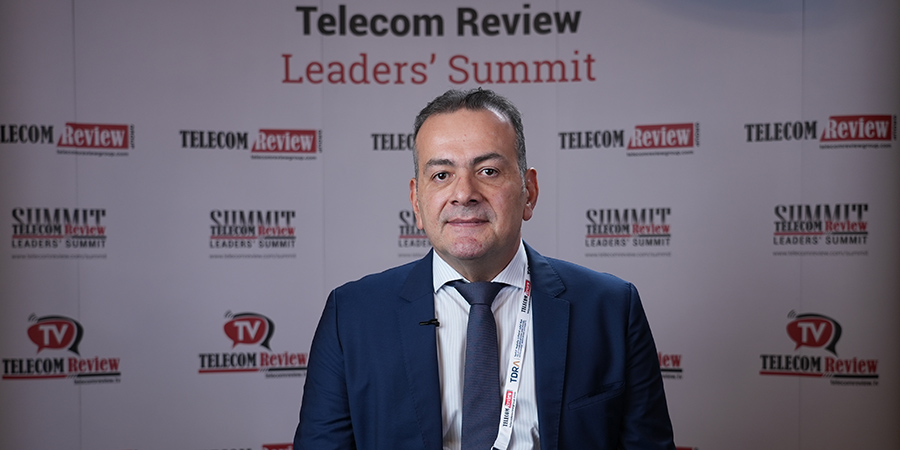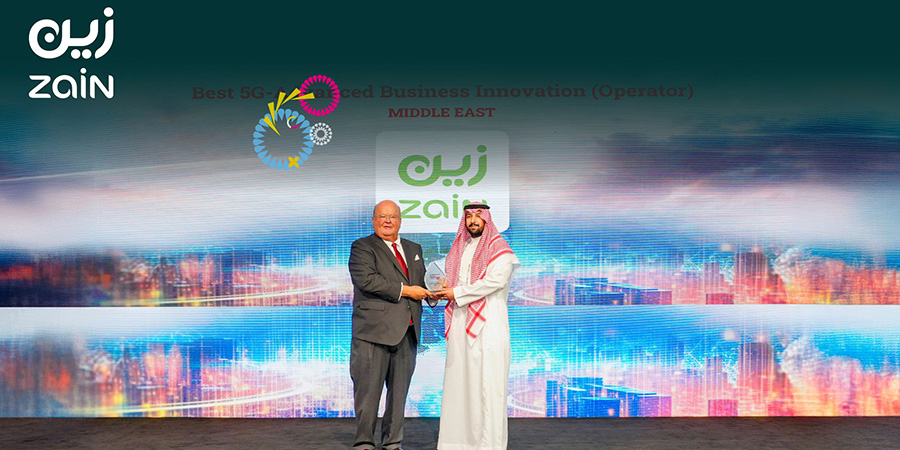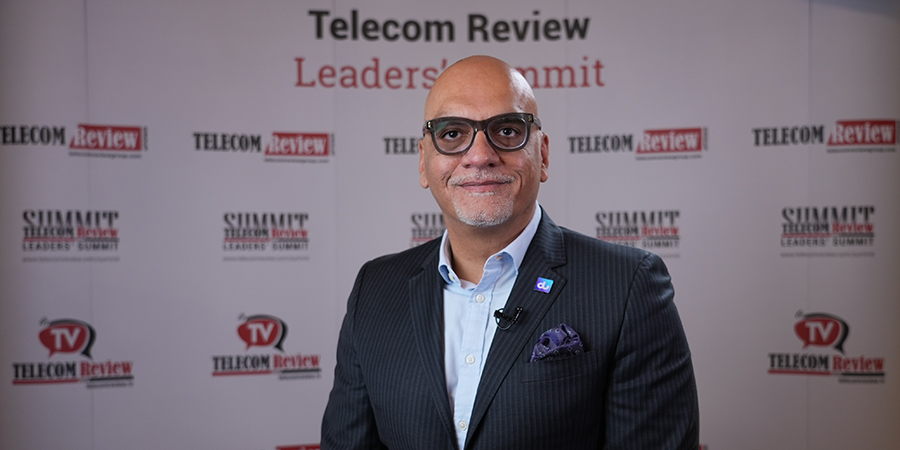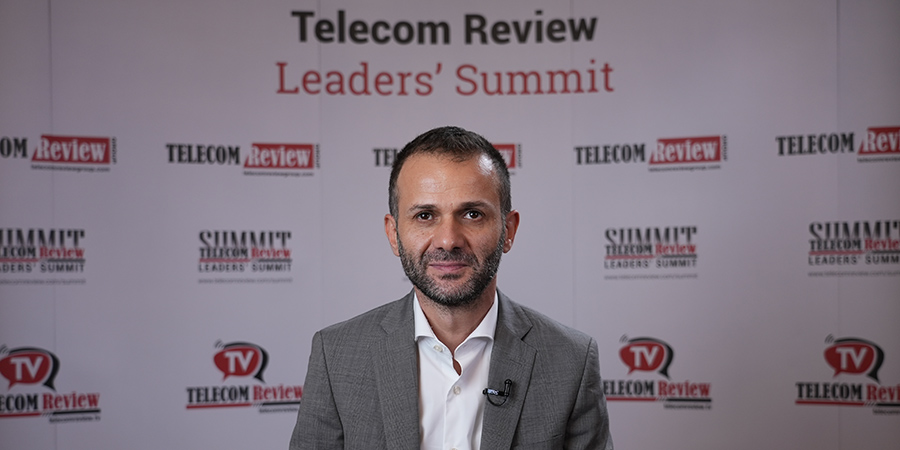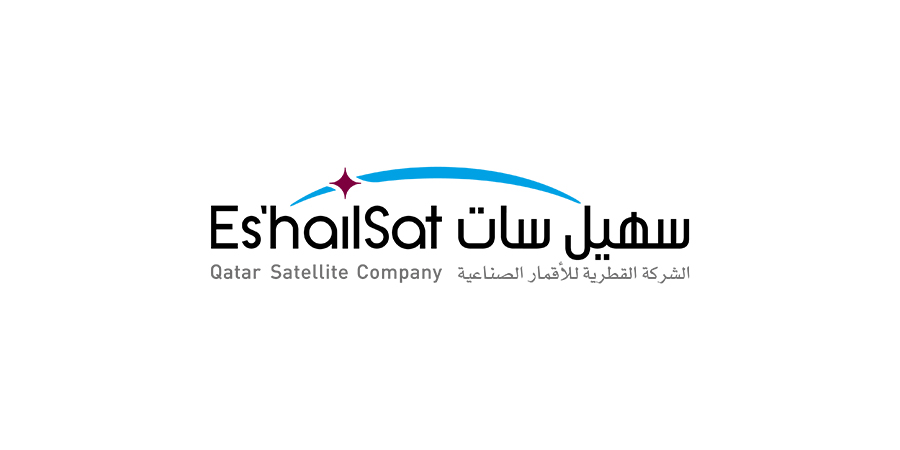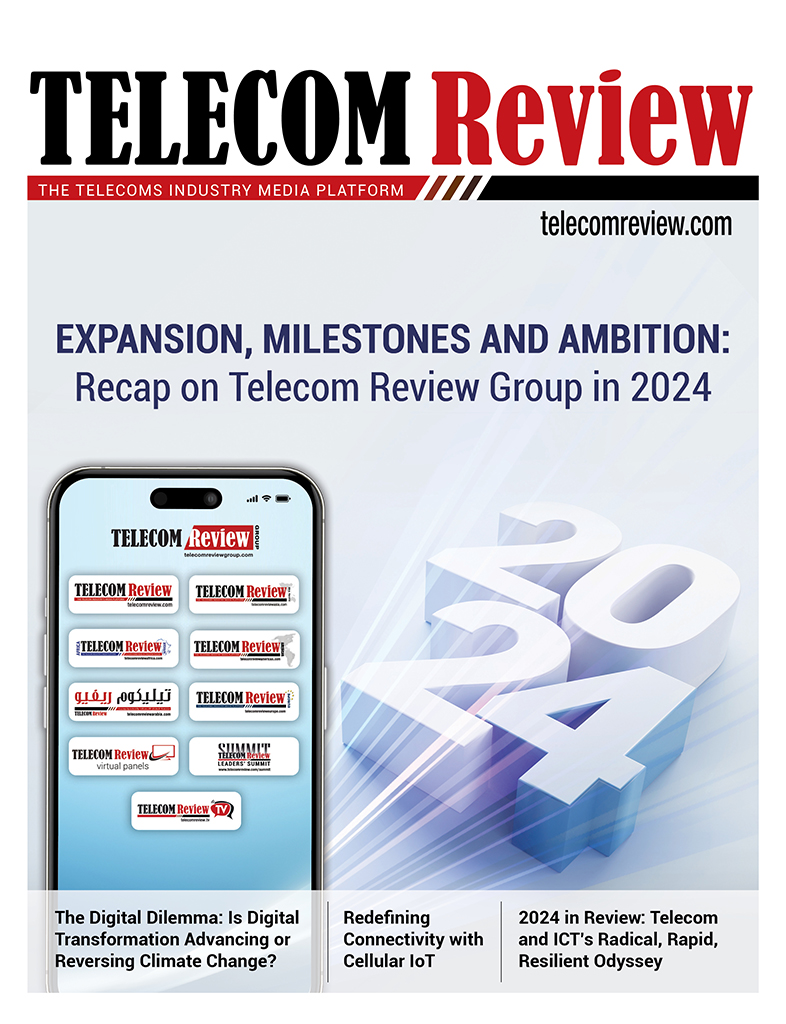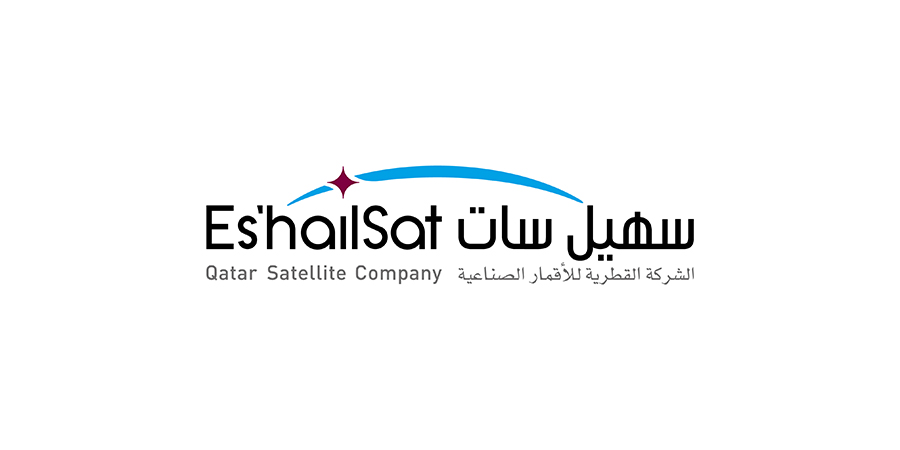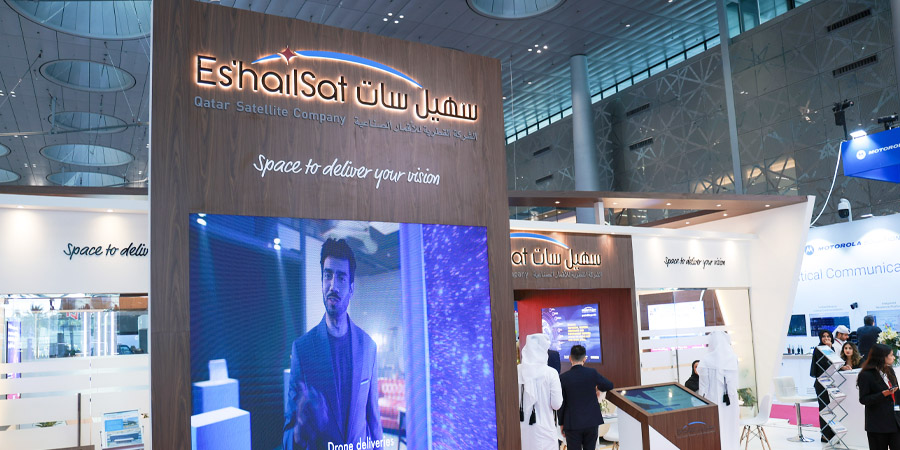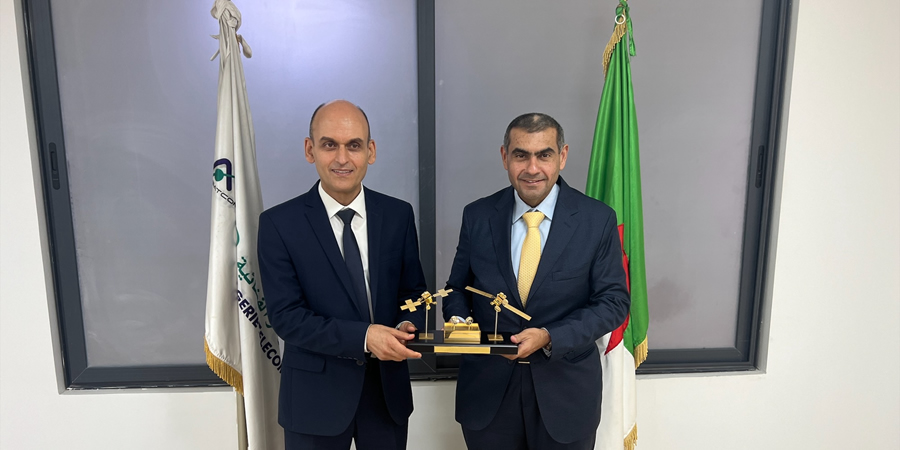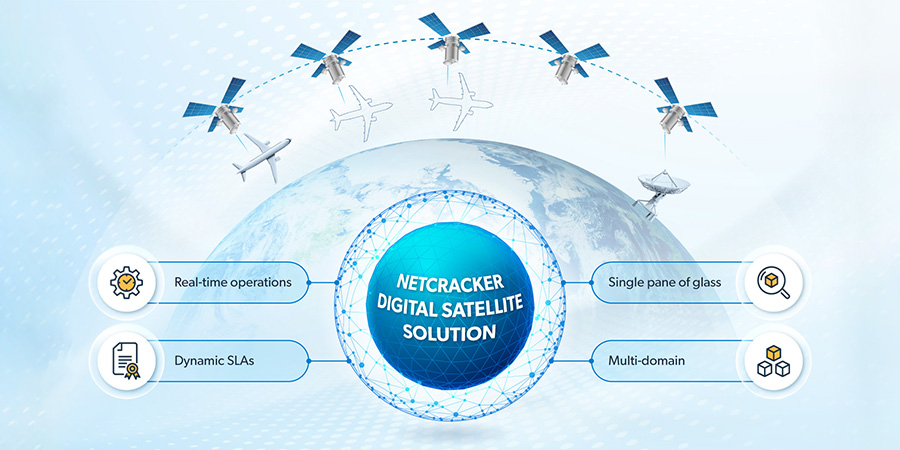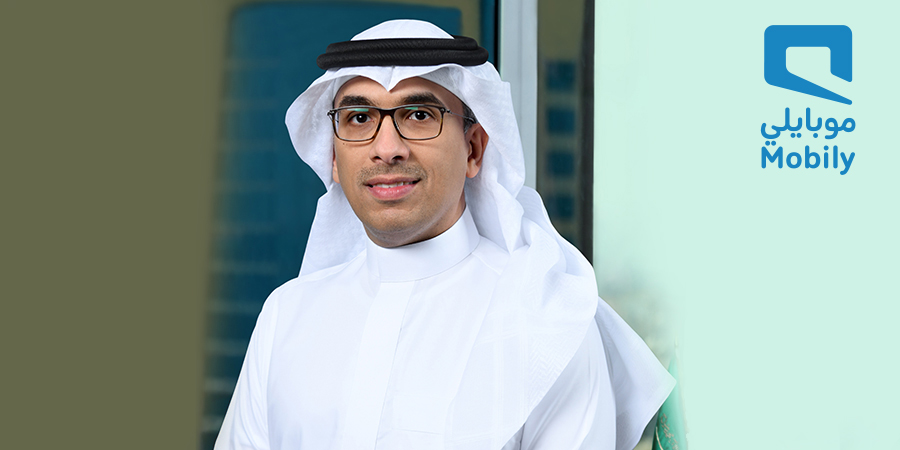Mobily, a leading telecommunications provider in Saudi Arabia, has embraced a digital transformation strategy to enhance its services and operations, driving continuous business growth. In recent years, Mobily has successfully implemented several digital practices and use cases in network experience and operations transformation. This commitment has earned the company recognition for delivering a consistent user experience in the kingdom.
Keeping pace with technological trends, particularly the rapid development of AI, Mobily has updated its strategy to emphasize AI technology. This strategic shift aims to leverage AI to further its digital transformation efforts.
In this exclusive interview with Telecom Review, Mobily’s CTO, Alaa Malki, shared his insights on AI transformation in the telecom industry. He also delved into how Mobily plans to utilize AI technology to enhance customer experience, improve network efficiency, and boost business agility.
As an influential figure in the telecom industry and the CTO of Mobily, how do you see artificial intelligence impacting the telecom industry in the next three-to-five years?
AI, particular GenAI’s development certainly has taken everyone by surprise. This technology has already had (and will continue to have) a profound impact across many industry sectors. I believe, in the next three-to-five years, artificial intelligence (AI) is set to fundamentally transform the telecommunications industry across the globe, with a particularly profound impact on the Middle East and Saudi markets. As one of the region's leading telecom providers, Mobily is strategically positioned to harness AI's potential to align with and drive its ambitious growth and innovation goals.
The Middle East is experiencing rapid technological advancements, with AI adoption expected to contribute significantly to economic growth. By 2030, AI is projected to contribute approximately USD 277 billion to the Middle Eastern economy, with Saudi Arabia alone accounting for nearly USD 135 billion. This growth is fueled by the Kingdom's Vision 2030 initiative, which places a strong emphasis on digital transformation and the adoption of advanced technologies like AI across various sectors, including telecommunications.
AI will revolutionize network management by introducing sophisticated tools for real-time resource optimization. Predictive maintenance, powered by AI algorithms, will foresee and address network issues before they impact service quality, leading to more resilient and reliable telecommunications infrastructure. In a region where high-quality connectivity is essential for both businesses and consumers, this capability will be crucial in maintaining Mobily's competitive edge.
Furthermore, AI-driven anomaly detection will play a critical role in enhancing cybersecurity within the telecommunications sector. As cyber threats become increasingly sophisticated, AI’s ability to identify and neutralize potential risks in real time will be a key differentiator, ensuring that Mobily’s networks remain secure and trustworthy for all users.
However, the most significant impact of AI will be on customer experience, which is rapidly becoming the focal point of competition in the telecom industry. In the Middle East, where customer expectations are evolving with the rise of digital services, AI will enable Mobily to offer highly personalized services. For instance, AI can analyze customer data to provide tailored recommendations, anticipate customer needs, and deliver proactive support. This level of personalization will not only enhance customer satisfaction but also foster deeper loyalty, as customers increasingly expect seamless and intuitive service experiences.
Moreover, AI's role in automating customer service through chatbots and virtual assistants will streamline operations and reduce response times, further enhancing the customer experience. These AI-driven enhancements align perfectly with Mobily’s strategic focus on ensuring that every technological advancement translates into tangible benefits for its users.
It sounds like Mobily has explored multiple AI concepts. Can you provide examples of how you have successfully implemented AI technologies in previous roles?
I am proud to say that Mobily is one of the early adopters of AI. We have partnered with industry leaders to introduce AI into our network and marketing. For instance, back in 2020, we explored how AI could predict potential interruptions in the fiber network due to planned or unplanned construction work. By identifying these risks, we could deploy engineers to monitor the areas during construction, ensuring zero disturbances to the fiber network.
As for now, we put a lot of emphasis on data analysis and AI technologies, which can play a crucial role in our digital transformation. To stay on top, we are constantly looking for ways to improve their services and customer experience, reduce costs, and increase efficiency. We are working with our partners in developing the use cases based on the data analysis and AI technologies, which could potentially help us to achieve these goals in several ways, including the following:
- Predictive maintenance helps Mobily identify potential faults or failures in our network infrastructure before they occur. This can reduce downtime, improve network performance, and ultimately improve customer satisfaction.
The latest successful AI project I led included the implementation of a predictive maintenance system called ‘cognitive network’ during the Hajj season, which reduced downtime and maintenance time.
- We have a chatbot for customer support which improved response times and customer satisfaction, and an AI-driven analytics platform which optimized network performance. These initiatives resulted in significant operational efficiencies and enhanced customer experiences.
- Network optimization, data comprehension, and AI algorithms that analyze network traffic and usage patterns were used to optimize network capacity, reduce congestion, and improve the overall user experience.
- Marketing and sales analytics help operators to better understand their customers’ needs, allowing Mobily to create targeted marketing campaigns and improve their sales efforts.
One of the key concerns with AI is data sensitivity and ethics. How does Mobily ensure the ethical use of AI technologies?
I think AI ethics is a multidisciplinary field that focuses on ensuring the responsible and fair development and use of AI. It involves a set of moral principles and guidelines designed to optimize AI’s beneficial impact while minimizing risks and adverse outcomes. Furthermore, data sensitivity is also paramount to ensuring security and safety compliance and long-term customer relationships.
To ensure the ethical use of AI and protect sensitive customer data, I believe it is necessary to implement several key measures across the whole industry:
- Data Privacy and Security: Implement robust data encryption and secure storage solutions to protect customer data from unauthorized access and breaches.
- Transparency: Clearly communicate how customer data is collected, used, and stored. Ensure customers are aware of their rights and how their data is being utilized.
- Ethical AI Guidelines: Develop and adhere to a set of ethical guidelines for AI use, ensuring that AI applications are fair, unbiased, and respect user privacy.
- Regular Audits: Conduct regular audits and assessments of AI systems to ensure compliance with ethical standards and data protection regulations.
- User Consent: Obtain explicit consent from customers before using their data for AI-driven applications, ensuring they have control over their personal information.
- Bias Mitigation: Implement strategies to identify and mitigate biases in AI algorithms, ensuring fair treatment of all customers.
- Employee Training: Train employees on data privacy, security practices, and ethical AI use to foster a culture of responsibility and awareness.
By adopting these measures, Mobily can ensure the ethical use of AI technologies while safeguarding sensitive customer data.
One of the key challenges many companies are facing is a lack of AI talents. How do you plan to build and develop an AI talent pipeline within your organization?
Saudi universities have been progressively introducing AI courses over the past decade. For example, the Saudi Data and Artificial Intelligence Authority (SDAIA) was established in 2019 to facilitate AI adoption in the Kingdom. King Abdullah University of Science and Technology (KAUST) launched its AI program in collaboration with SDAIA in 2023. Other universities, like King Fahd University of Petroleum and Minerals (KFUPM), have also developed AI-related programs in recent years. These initiatives align with Saudi Arabia’s Vision 2030, emphasizing digital transformation and advanced technology adoption.
We have started to establish partnerships with universities and tech organizations to create internship programs focused on AI and data science. Additionally, we are developing partnership and mentorship initiatives to help current employees upskill in AI technologies. By cultivating a culture of continuous learning and innovation, we aim to attract and retain top talent in the AI domain.
Given the rapid development of AI technology, how do you stay abreast of the latest trends and advancements in AI technology?
Generally, I stay updated on technological advancements by actively participating in industry conferences, engaging with thought leaders through webinars and partner workshops, and subscribing to key journals. I also encourage our teams to attend workshops and share insights from these experiences. This collective knowledge helps us stay ahead in a rapidly evolving landscape.
Furthermore, at Mobily, we have established AI training programs with our partners and external training providers. These programs offer both online and offline courses, covering AI from basic understanding to advanced knowledge, catering to a broad range of employees. I continuously emphasize the importance of lifelong learning, especially in today’s fast-paced world where technology changes rapidly. We must learn, understand, and advance to stay relevant in our industry.
Like many new technologies, AI projects often come with challenges. Can you share your experience with handling setbacks in AI projects and how you addressed them?
Indeed, with AI projects, there are many challenges, particularly at the beginning, such as, data quality and integration, skill gaps, security concerns, scalability, cultural resistance, and clear objectives. All of these will hinder AI project implementation.
By strategically addressing these challenges, telecom operators can leverage AI to improve operations, enhance customer experience, reduce costs, and increase efficiency, ultimately driving business growth and innovation.
For Mobily, addressing challenges in AI projects involves a multifaceted approach:
Data Privacy and Security: Mobily prioritizes the protection of customer data by implementing robust data encryption and secure storage solutions. These measures ensure that customer information is safeguarded from unauthorized access and breaches. By continuously updating our security protocols and employing advanced technologies, we maintain the highest standards of data privacy and security.
Transparency: At Mobily, we believe in clear and open communication with our customers. We transparently communicate how customer data is collected, used, and stored. This includes providing detailed information on our data practices and ensuring that customers are fully aware of their rights. By fostering transparency, we build trust and confidence among our users.
Ethical AI Guidelines: Mobily is committed to the ethical use of AI technologies. We have developed and adhere to a set of ethical guidelines that ensure our AI applications are fair, unbiased, and respect user privacy. These guidelines are integral to our AI strategy, guiding the development and deployment of AI solutions that align with our values and ethical standards.
Regular Audits: To ensure compliance with ethical standards and data protection regulations, Mobily conducts regular audits and assessments of our AI systems. These audits help us identify and address any potential issues, ensuring that our AI applications operate within the established ethical and legal frameworks. Regular assessments also enable us to continuously improve our AI systems and maintain high standards of integrity.
User Consent: Mobily places a strong emphasis on user consent. We obtain explicit consent from customers before using their data for AI-driven applications. This approach ensures that customers have control over their personal information and are fully informed about how their data will be used. By prioritizing user consent, we respect our customers' privacy and autonomy.
Bias Mitigation: To ensure fair treatment of all customers, Mobily implements strategies to identify and mitigate biases in AI algorithms. We continuously monitor and refine our AI systems to prevent any form of discrimination or bias. This commitment to fairness is essential for providing equitable services and maintaining the trust of our diverse customer base.
Employee Training: Mobily invests in comprehensive training programs for our employees on data privacy, security practices, and ethical AI use. By fostering a culture of responsibility and awareness, we ensure that our team is well-equipped to handle the complexities of AI technologies. Continuous education and training help us stay ahead in a rapidly evolving technological landscape and uphold our commitment to ethical AI practices.
By integrating these measures, Mobily ensures the ethical use of AI technologies while safeguarding sensitive customer data. This holistic approach not only enhances our operational efficiency but also strengthens our relationship with customers, driving long-term success and innovation.
You mentioned the importance of cross-department collaboration in implementing AI projects. Could you elaborate on how you would collaborate with other departments, such as marketing or operations, to integrate AI solutions effectively across the company?
Effective collaboration is essential for the successful integration of AI solutions. I believe in fostering strong relationships between our technology teams and other departments such as marketing and operations. By conducting regular cross-departmental meetings and workshops, we can identify specific needs and align our AI initiatives accordingly. This collaborative approach helps ensure that AI solutions are not only technically sound but also strategically beneficial across the organization.
One of the key benefits of this collaborative approach is the ability to tailor AI solutions to meet the specific needs of different departments. For example, the marketing team may require AI tools to analyze our customer data and predict trends, while the operations team might need AI for optimizing network performance and maintenance schedules. By understanding these unique requirements, our technology teams can develop customized AI solutions that address the distinct challenges faced by each department. This not only enhances the effectiveness of the AI solutions but also ensures that they deliver tangible benefits to the organization.
Moreover, regular cross-departmental meetings and workshops foster a culture of continuous learning and innovation. These interactions provide opportunities for team members to share their insights and experiences, leading to the generation of new ideas and approaches. This collaborative environment encourages creativity and experimentation, which are crucial for the successful implementation of AI technologies. It also helps in building a sense of ownership and commitment among employees, as they feel more involved in the decision-making process and the development of AI initiatives.
Another important aspect of effective collaboration is the alignment of AI initiatives with the overall strategic goals of the organization. By involving different departments in the planning and implementation of AI projects, we can ensure that these initiatives support the broader objectives of the company. This alignment is critical for maximizing the impact of AI technologies and achieving long-term business success. It also helps in securing the necessary resources and support from senior management, as they can see the direct link between AI initiatives and the company’s strategic goals.
Furthermore, effective collaboration helps in addressing potential challenges and risks associated with AI projects. By bringing together diverse perspectives and expertise, we can identify potential issues early on and develop strategies to mitigate them. This proactive approach reduces the likelihood of project delays and failures, ensuring a smoother and more successful implementation of AI solutions.
I believe that fostering strong relationships between technology teams and other departments is crucial for the successful integration of AI solutions at Mobily. Regular cross-departmental meetings and workshops help to identify specific needs, aligning AI initiatives with strategic goals, and fostering a culture of continuous learning and innovation. This collaborative approach ensures that AI solutions are technically sound, strategically beneficial, and effectively address the unique challenges faced by different departments, ultimately driving business growth and success.
Continue Reading:
Mobily Announces Transformative Partnerships During LEAP 2023





